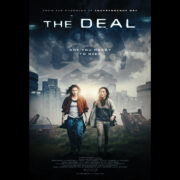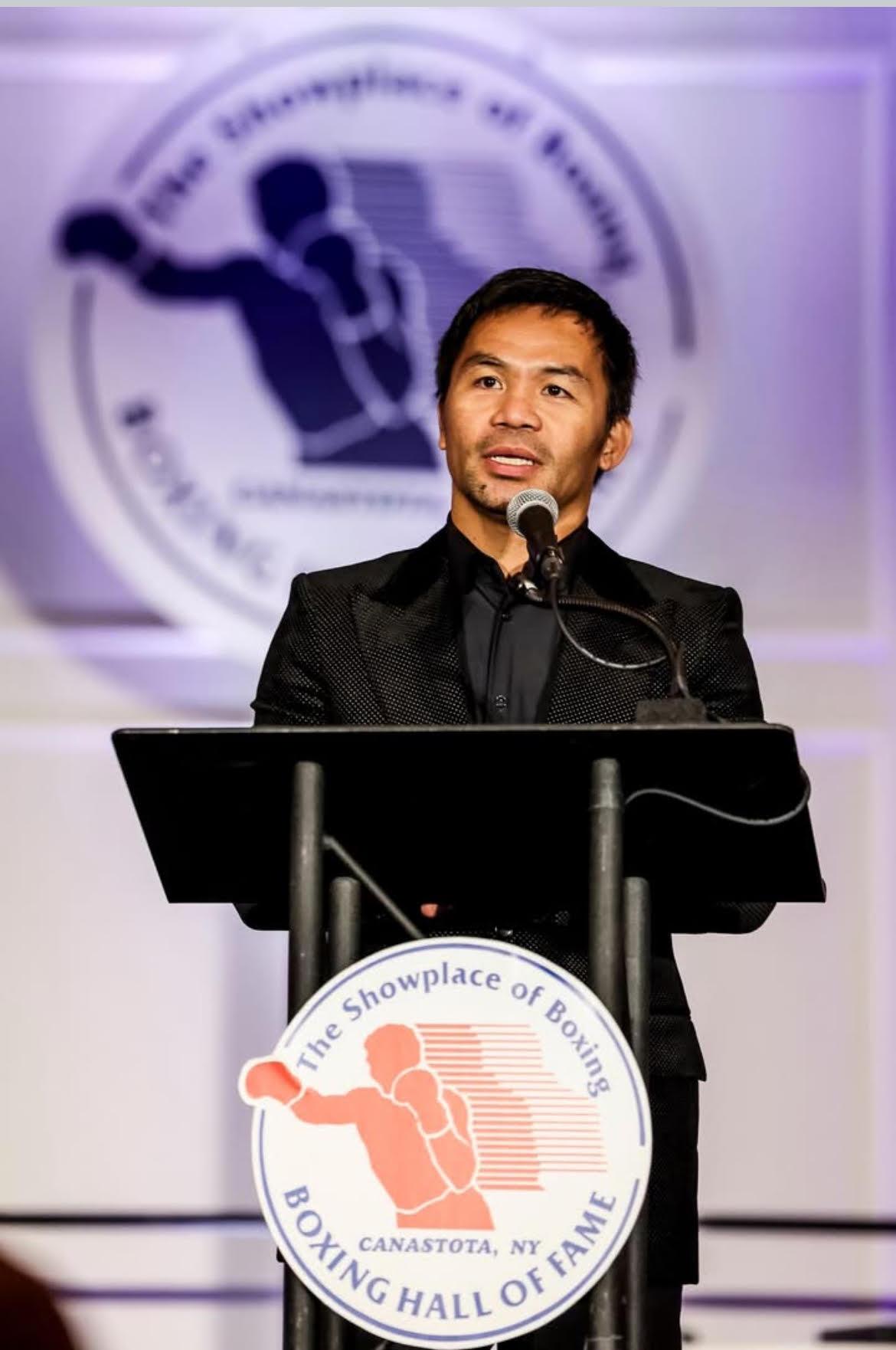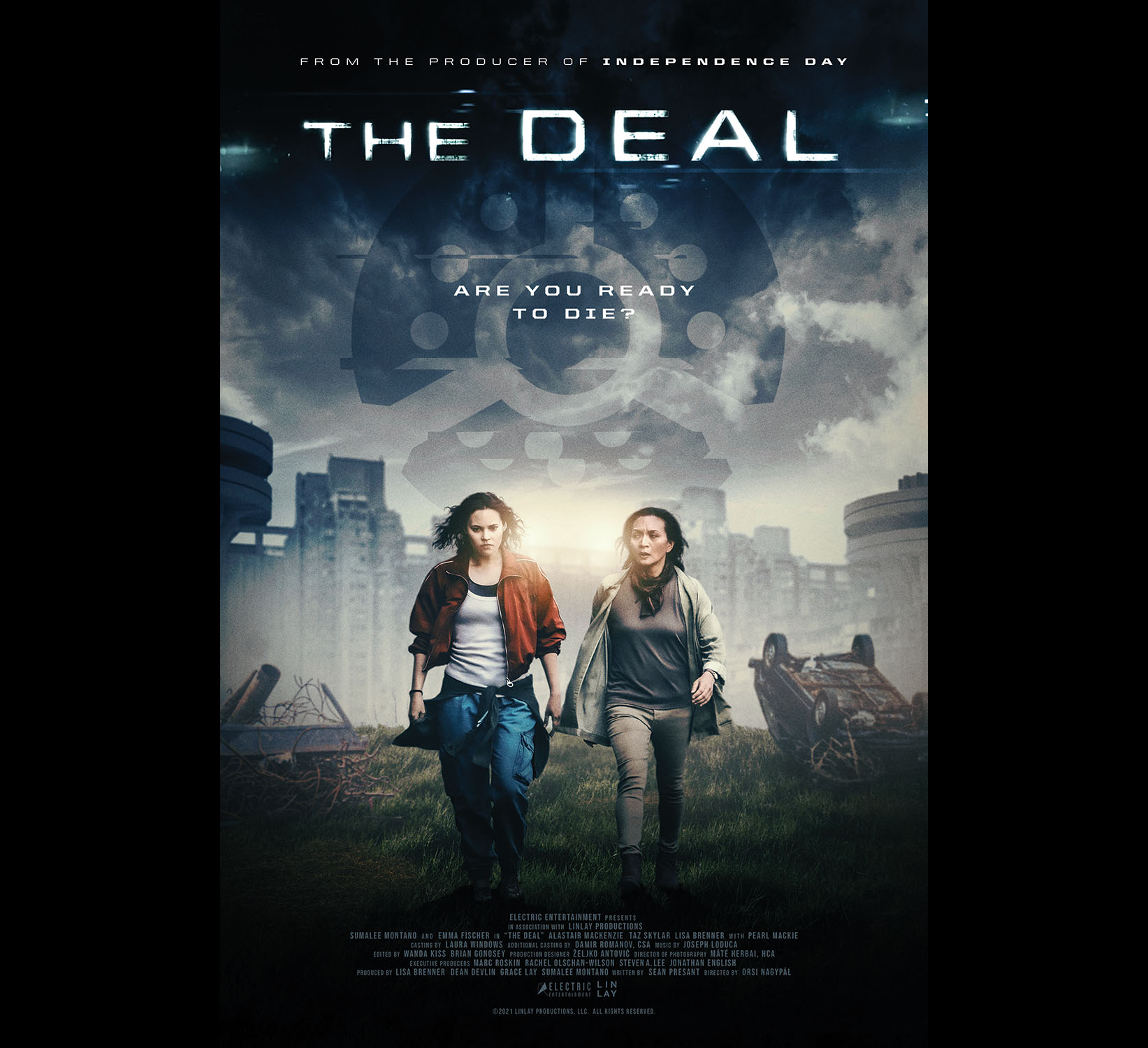 THE Deal (currently streaming on The Roku Channel) is a dystopian film that deals with the universal theme of a mother-and-daughter relationship. Fil-Am actress Sumalee Montano, who created and co-produced the movie – considered it her dream project. Since she started acting, her dream has always been to keep working with uber-talented people for as long as possible.
THE Deal (currently streaming on The Roku Channel) is a dystopian film that deals with the universal theme of a mother-and-daughter relationship. Fil-Am actress Sumalee Montano, who created and co-produced the movie – considered it her dream project. Since she started acting, her dream has always been to keep working with uber-talented people for as long as possible.
For this film, she was able to do that, and more.
“I got to make a film that I conceived, produced, and acted in. We had fantastic locations, an incredible crew, and we ended up with a beautiful movie that I’m so proud of,” Montano told the Asian Journal. “In Hollywood, that’s already like winning a billion-dollar lottery jackpot!”
The Deal is, in a way, a love letter to Sumalee’s biggest inspiration – her mom, Linda Montano.
“I wanted to tell a story that honored how much she loved me. She made so many sacrifices to give me the life I have, some of which I didn’t know about until after she died,” she revealed. “So I wanted to dedicate this film to her, and people like her, who would do anything for the people they love. At its core, this is a story of a mother’s love for her daughter and their mutual desperation to protect one another, no matter what it takes.”
Let’s get to know this multi-hyphenate Hollywood personality more.
Sumalee’s first name is Thai, but it has a meaning in Filipino too. In Thai, Sumalee means fragrant flower; in Tagalog, “Sumali” means to join.
Born to a Thai father and a Filipino mother, Montano had a Thai last name growing up, and it was quite a long name, intimidating for non-Thai people. When she decided to pursue a career as an actor, she changed her last name to her maternal grandmother’s maiden name, Montano.
“My grandmother, Jesusa Montano, was an actress and teacher in the Philippines. Her brother, my grand uncle, is playwright and national artist Severino Montano,” she proudly shared. “I like having a name that reflects my dual heritage, Thai and Filipino, and that my last name, Montano, represents the creativity and love of the arts I got from my Filipino side.”
Before acting, Montano worked as an investment bank analyst. She transitioned to acting because she realized that it was where her true passion lay.
“It was a tough choice to make. I had a high-paying job at a global financial services company and I worked my way from New York into a coveted position in Hong Kong,” she recalled. “Then I walked away from that stability and wealth to embrace the utter uncertainty of acting. My family freaked out.”
Eventually, her parents understood the decision.
“They helped me a lot by paying for my college education,” she said. “So I was able to use the money I made from investment banking to start my acting career. That was a big factor in making my career transition successful.”
“But at the end of the day, we know that life is short,” she added. “I would have regretted not pursuing my acting dreams.”
Montano can be currently seen in “Dan Brown’s The Lost Symbol” on Peacock, where she is in the main cast as CIA officer “Inoue Sato.” She also has a recurring role, opposite Daveed Diggs, on Season 4 of “Snowpiercer,” based on Bong Joon-Ho’s film. She will also be guest-starring on upcoming episodes of the new “CSI:Vegas” and “Quantum Leap.”
On the voice-over acting side, she is working on multiple video games and animated series on Nickelodeon, Disney, and Netflix. A new series that was just announced is “Dragon Age: Absolution,” which premieres in December on Netflix.
“As a producer, my partner Grace Lay and I have several films out this year, in addition to “The Deal” on Roku Channel. We have “Nanny,” being released by BlumHouse/Amazon. Nanny is the first horror film ever to win the U.S. Grand Jury Prize at Sundance Film Festival. We also have a couple documentaries: “Riotsville, USA,” acquired by Magnolia Pictures and “Aftershock” by Disney/ABC News,” she shared. “I’m also focused on developing more of my own ideas for future live-action and animated television series.”
In a Q-and-A with the Asian Journal, Montano shared her journey into acting and creating stories, the challenges she faced along the way, and the importance of telling her own story.
You wore a few hats for this film – what are among your biggest takeaways?
“The Deal” is set in a dystopian sci-fi world, which is a beloved but also historically exclusivegenre. It was important to us that we center characters and perspectives that we normally don’t see in these genres, like women of color of different ages.
The most marginalized people in society deserve to be at the center and not as a form of displaying trauma for entertainment, but rather for honoring a unique perspective that can and should be different.
By creating stories that audiences can empathize with, we give people the opportunity and permission to also advocate for these communities.
A takeaway I hope audiences get from our film is that we live in a world where people’s backs are often forced against walls and they’re shamed or criminalized for how they act in those moments. In “The Deal,” we see this up close and personal as Tala’s processing date (i.e., death date) approaches and she finds no empathy from The Bureau or others in power.
Whether people are living through war or navigating poverty and homelessness, there are countless issues limiting the quality of life that people are allowed to access. Through a fictional world, The Deal allows us to see the insanity in moving through an unjust world as though nothing out of the ordinary is happening.
How do you feel about the good reviews that the film has received?
It’s wonderful. A beautiful thing about “The Deal” is that despite the dystopian genre, the story is truly universal and one that everyone can relate to in their own way. If you’ve ever loved someone deeply or been loved deeply, you’ll connect with our story.
A lot of people say they connect with our film in ways they didn’t expect. It’s a real adventure.
There’s also a twist at the end that surprises people. And as a storyteller, it makes me happy that people are enjoying the emotional ride they go on while watching our film.
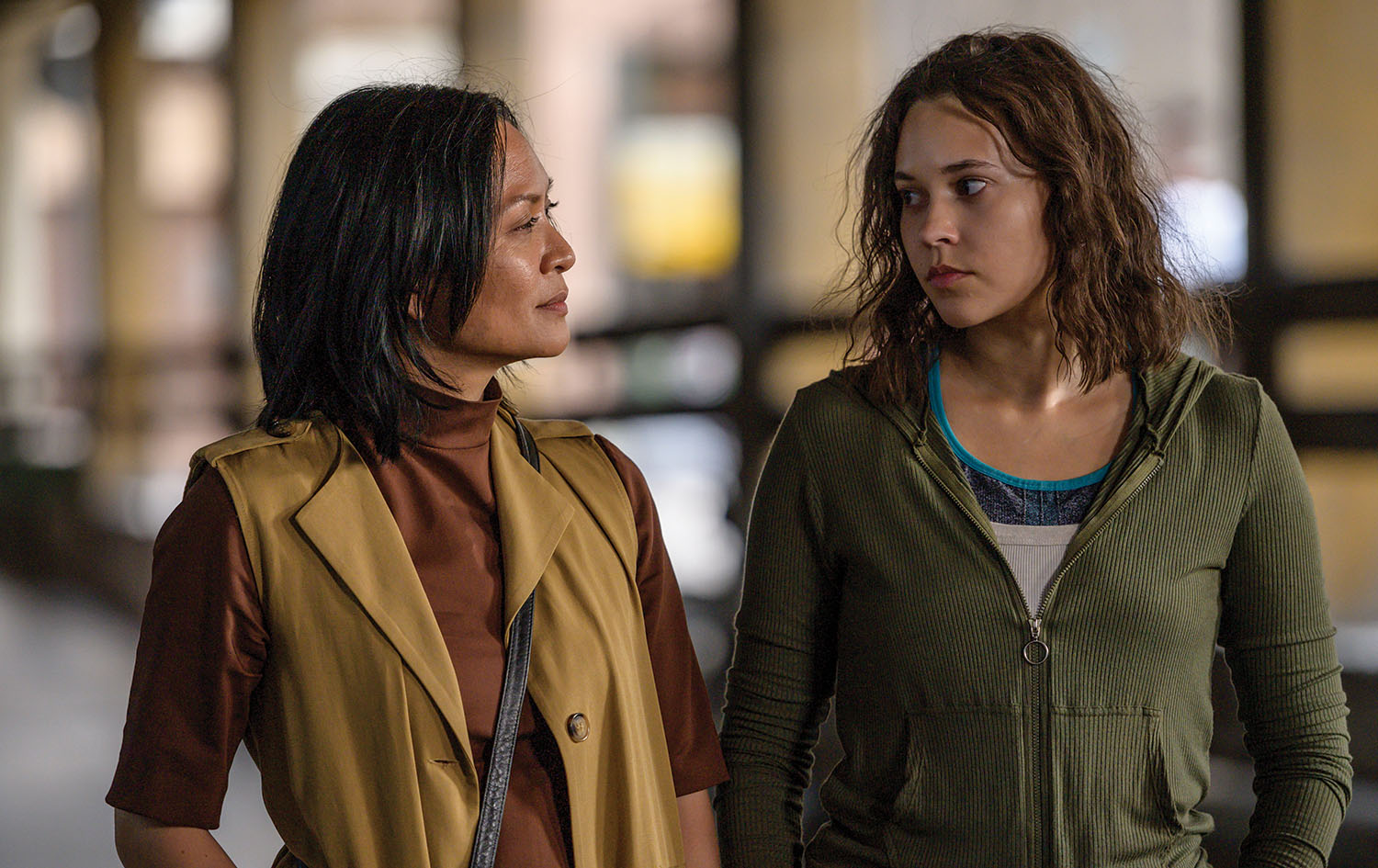
Your character’s name is Tala Bayani. It’s pretty rare to see lead actors sporting Filipino names and looks. How important was this for you?
Diversity and representation are very important to me. With “The Deal,” we tell a story that’s based on my own Filipina mother, in a genre where Filipinos are rarely present at all, let alone in dynamic ways. So my mom’s character having a Filipino name, Tala Bayani, just made sense. It would’ve felt inauthentic otherwise.
What did it take for this film to happen?
A LOT. It really takes a village, a few minor miracles and then some!
I would start by crediting our talented screenplay writer, Sean Presant. Working with Sean was such a gratifying, collaborative experience. As an actor I usually receive more polished scripts.
But as a producer on this film, I got to help mold and develop the story from the very start, along with Sean.
The film also wouldn’t have happened without producers Lisa Brenner and Dean Devlin, who is also Filipino. Their expertise and care are reflected everywhere in our film – from the production value you see in our world-building to how our two lead characters aren’t portrayed as superheroes but rather as “every women” who fight back using their hearts and minds.
We had a great group of women working on this film. Our director, Orsi Nagypal, is brilliant. She grew up behind the Iron Curtain in Hungary, so her lived experiences really informed her vision and storytelling. And my producing partner, Grace Lay, who is also Asian-American, is a great advocate for telling intergenerational, multicultural stories like “The Deal.”
How was it working with Dean Devlin?
I love how Dean wanted to attack our toughest scenes right out of the gate. On day one of filming, we had big scenes to cover, a hundred extras on set, huge crane shots, VFX elements to accommodate, and record-breaking heat that day, to top it all off.
Some producers would rather ease into filming and start off with less demanding days. But for us, Dean preferred to take huge swings at bat right from the get-go. It was exhilarating!
Everyone was buzzing with excitement. Everyone wants the days to go well. It was such a fun rush. That’s what characterizes working with Dean for me.
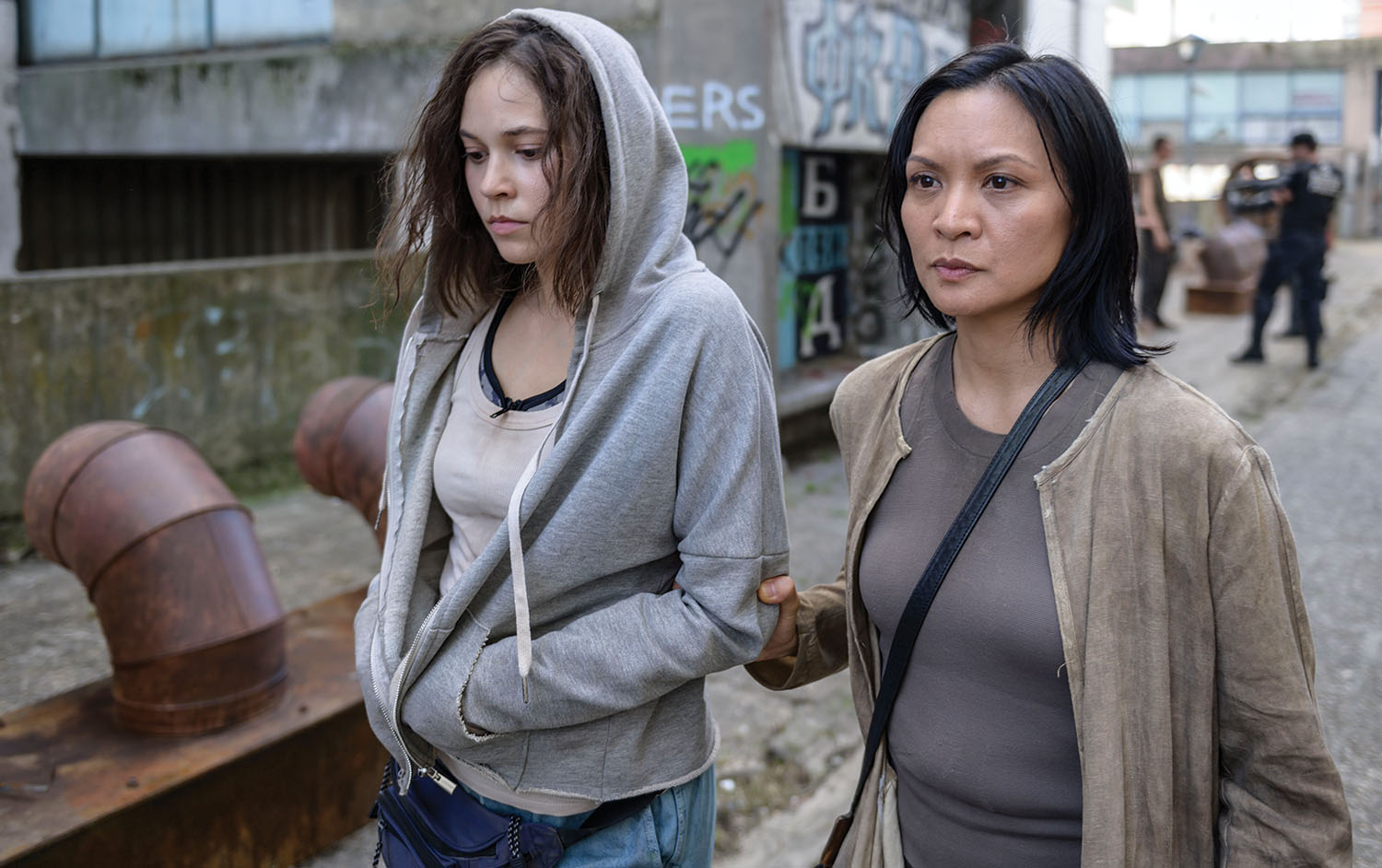
It is a personal mother-and-daughter story inspired by your own. What were the most important lessons your mother taught you?
Maybe the most pertinent lessons are: 1) how important family is and 2) no matter what life throws at you, you do everything you can to protect those you love. In retrospect, her quietest sacrifices were her deepest expressions of love.
Like Tala in “The Deal,” my mom would always instruct me to find hidden opportunities, especially around how to stretch a dollar. As a single mom, she learned to be a jack-of-all-trades to make sure she could make ends meet. Several times before she died, she would tell me where to find the valuables she had squirreled away for me in the event of her death. I love how much of my relationship with my mom made it onto the screen.
What was the biggest challenge you faced in coming up with the movie?
One of the biggest challenges was getting a story that existed in my mind onto the page as a screenplay. Sean, our writer, was excellent. He helped me tell the story I wanted to tell while making it even better than what I imagined!
During the development process, Sean was great about always making sure my mom was our guide, our North Star.
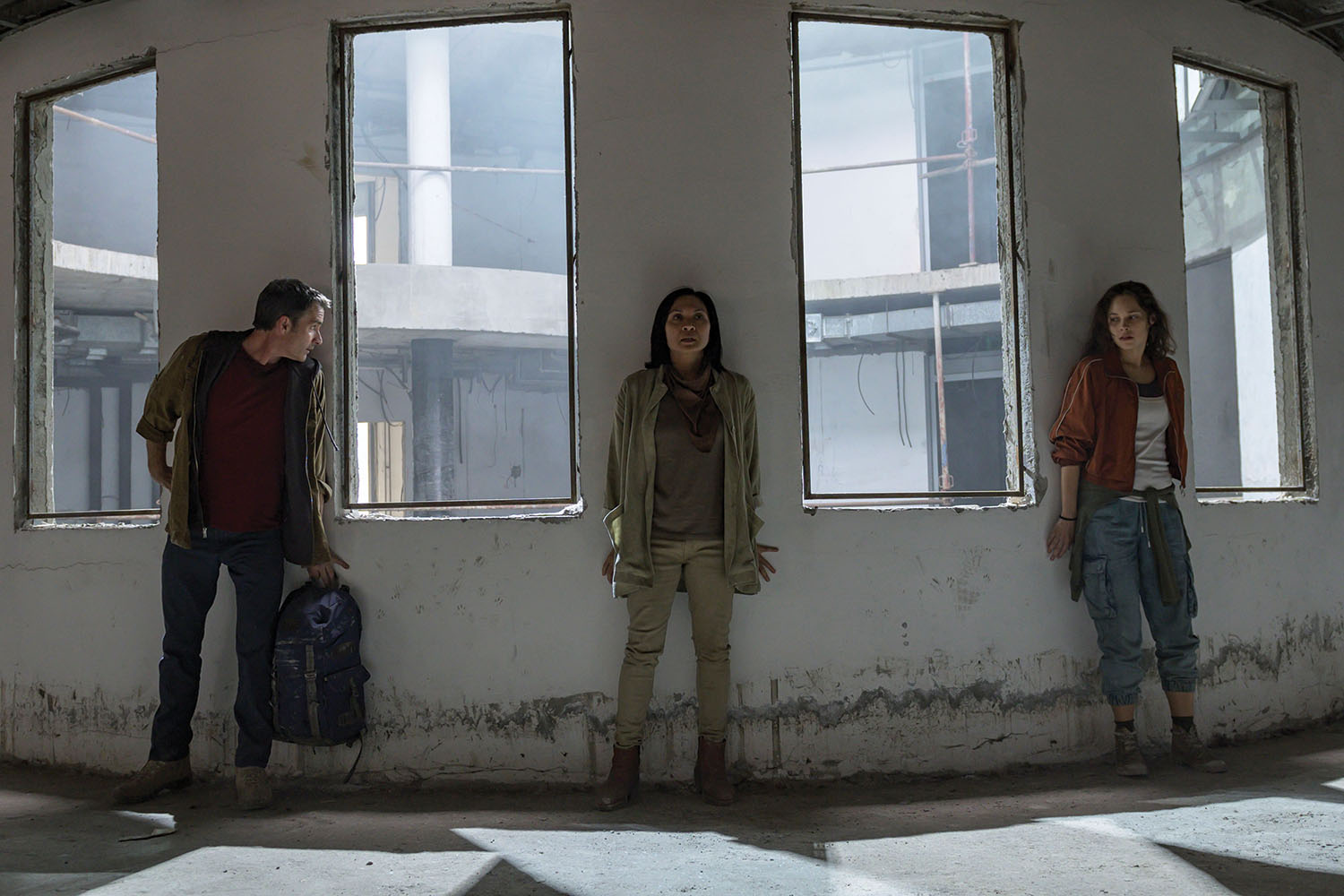
How would you describe the mood on the set?
And as to working with my co-stars, it was lovely. Everyone is so talented. It was such a joy to play with Alastair Mackenzie, Pearl Mackie, and Taz Skylar. And of course, Emma Fischer, who plays Analyn, gave such a great performance. I’m so grateful to have gotten to work with all of them.
I heard about your Fulbright scholarship to the Philippines – what was that like? What do you remember most about your mom’s old country?
My year of living and studying in the Philippines was one the best experiences of my life. It helped me connect with my roots. And some of my best friendships were formed then.
I got to make memories of a lifetime – everything from befriending families in the squatters.
A community where I did my research, scuba diving in some of the world’s most pristine waters, watching Filipino movies at the mall, and hanging out drinking beers with my mountaineering friends.
I think back on that year and feel so grateful for everything. But what I remember most is the laughter.
Growing up in the States, I would often hear my mom and her friends burst into peals of huge, raucous laughter. I thought that was just how my mom and her friends were.
But then I developed my friend groups in the Philippines, and we would laugh the same way! I realized our laughter, the way we Filipinos laugh, is cultural. It’s one of the many things I love about Pinoy culture.


